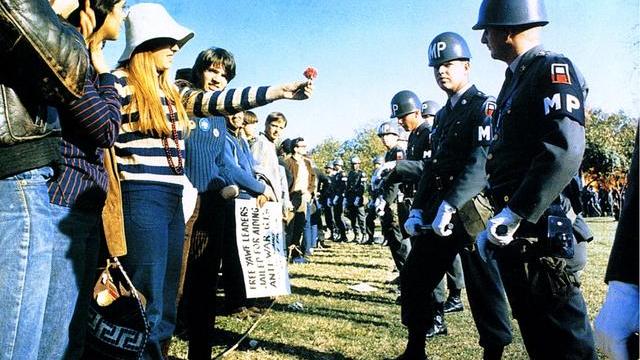We learn in history class that certain events were a Big Deal, and we assume they were unique and unprecedented. But many of these things, from technological breakthroughs to political shake-ups, used to happen all the time. Here’s a list of eight not-quite-so-special things that occurred regularly throughout history.
8) Excommunications
A major event in the history of many European nations is when they “broke” from the Catholic Church. The inevitable excommunication — of a town, of a province, of a country — sounds dire. History books illustrated the terror that excommunication instilled in the powerful by talking about the humiliation of Henry IV, the Holy Roman Emperor. Exact accounts vary, but after he was excommunicated by Pope Gregory VII in 1076, he walked over the Alps barefoot to meet the Pope at Canossa, and then stood outside the gates, waiting for the angry Pope to let him in, for three days.
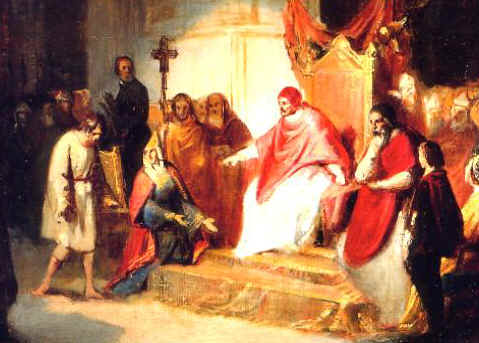
A lot of things can happen in a few hundred years. One thing that happened was The Great Schism, in 1378. The papacy split, with one Pope in Rome and one in Avignon, France. Both excommunicated the followers of each other. For about 40 years, there was no way to avoid being excommunicated. It wasn’t all bad, though. If your city or your nation got a bad deal from one Pope, you could always seek a better option. The two Popes, and their allies, were always jockeying for position with money and military might. By 1417, the papacy was something people achieved by power and wealth — between 1513 and 1605 there were four Medici pope — and once a pope got confirmed, he used the threat of excommunication to get people to pay up. Principalities were regularly excommunicated, and it wasn’t so much a terrible spiritual blow as a negotiation tactic or a way to make it clear to the surrounding states that it was open season on the excommunicated territory.
7) Machines and Engines
Leonardo da Vinci invented early simple steam engines, as well as other mechanical parts, in the 1400s. An encyclopedia of technology, compiled in the 1600s in China, also contains sketches for steam engines and, due to the discovery of gunpowder in China, early combustion engines.
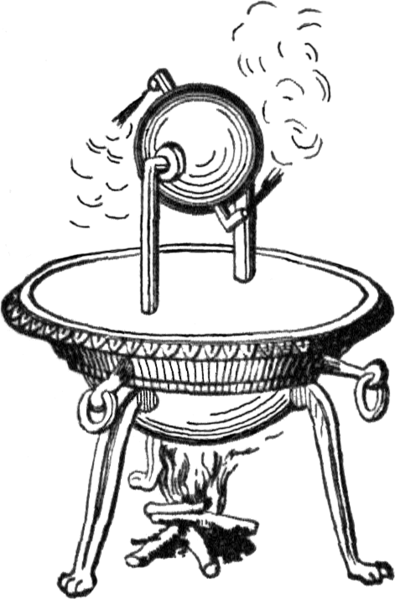
Naturally, any invention deserves praise, but the real thing holding back the mechanical age wasn’t the invention of the steam engine, it was everything else. Materials science had to advance to the point where the substance of engines could be tweaked to account for each engine’s specific task. Societies had to gain the ability to build national rail systems, both to transport people and to transport the products made by other machines. Then there were the social conditions that led to mechanization. We think of the industrial revolution as a step away from cottage industry, forgetting that cottage industry, with its piecemeal work and the fact that it caused surplus farm workers to move to cities and provide a labour pool for early factories, was a step on the way to the Industrial Revolution. Inventions can change the world, but often the world only changes when it’s ready for an invention. Put a laptop in the dark ages and, even if it could work, it would change nothing.
6) Civil Rights Roll-Backs
We’ve talked before about how women’s rights isn’t a forward progression so much as a forward and backward oscillation. This push forward and roll back has played out all over the globe, and in all time periods, including our own. Gay rights have also gone forward and backwards. Some scholars think that cave paintings depicted homosexuality. Greek and Roman art definitely did. Sometimes homosexuality was accepted officially, sometimes unofficially. And sometimes it was demonized and outlawed.
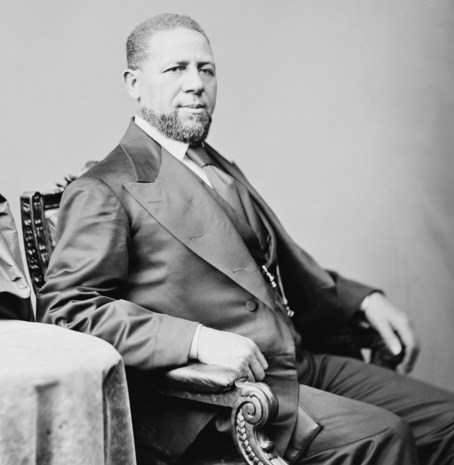
The first black United States senator was Hiram Rhodes Revels, who served in 1870 as the senator representing Mississippi. He was followed by Blanche Bruce, who represented Mississippi from 1875 to 1881. In 1888 John Mercer Langston ran for congress in Virginia, and won, although it took a while to confirm his victory, because by the late 1880s, Reconstruction was over and corruption was creeping into the electoral system. By the 1890s, constitutional and procedural changes essentially eliminated the right to vote for many black Americans, and ended the possibility of black elected officials in southern states. That didn’t change until the next forward advance in civil rights in the 1960s and 1970s.
Civil rights are not set in stone. Throughout history people have won great advances for their race, religion, or gender, only to see them get rolled back again in the next generation.
5) Messiahs
Any nutball can claim they’re a messiah, but a surprising amount of nutballs have successfully convinced a large amount of people of the truth of their claims. Any religion that has a possible messiah gets a messiah, and does so several times every century. The first Christian messiah was Simon Magus. He was actually in the Bible, but still claimed to be the messiah. He still has a following. The latest Christian messiah is David Shayler, an MI5 agent who declared himself the messiah in 2007.
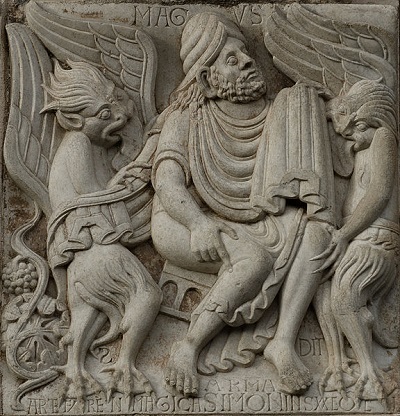
The first recorded Jewish messiah claimant lived until 4 BC. He was another Simon, Simon of Peraea. He was executed by the Romans. The latest Jewish messiah was Menachem Mendel Schneerson, who lived from 1902 to 1994 and who broke the pattern of messiahs. Some of his followers believe he was the messiah, but he didn’t claim to be.
In Islam, the messianic figure is the mahdi, who will return to the world and put things to rights before the day of judgment. Breaking the streak of Simons, the first claimant was Mukhtār al-Thaqafī, who started a rebellion against the rule of the Umayyad Caliphate in 686 AD. The latest was Juhayman al-Otaybi, who started a rebellion against the rule of the House of Saud in 1979.
In between the first and the last of the messiahs are countless more. If we don’t find multiple messiahs with sizable and devout followings in each time period, it generally means we don’t have many records on the time period.
4) Plumbing
Hey, they can’t all be glamorous. We think that in the “old days,” that rivers were running with the faeces of the local population and people had to strain out poop when they filled their drinking buckets every morning. That’s not exactly the case. The Romans aqueducts were famous, but not unique. The ancient Mesopotamians had systems of canals that channeled and separated waste water and fresh water. The Minoans of Crete had ceramic plumbing systems in 3000 BC. The Qin Dynasty, in 200 BC, had plumbing systems as well.

Generally, when we think about a lack of plumbing we think of medieval squalor or overcrowded cities during the Industrial Revolution. But nearly every town or city, even then, had systems that kept sewage contained and brought in fresh water. They had ordinances meant to keep the streets clear of sewage, and officials that could enforce those ordinances. (In the 1800s, in Britain, those officials had the delicious title of “nuisance men.”) Water contamination and sewage in the streets often stemmed from the fact that people ignored public ordinances the way people today in cities ignore laws to clean up after their dog, pick up their litter, and not dump furniture on the curb. This isn’t to say that the city or the state wasn’t also often at fault. It took public health organisations a while to build enough public toilets, and demand that landlords put in and maintain enough privies and toilets to keep a population healthy. Still, the past wasn’t as saturated with faeces as we imagine.
3) Financial Collapses
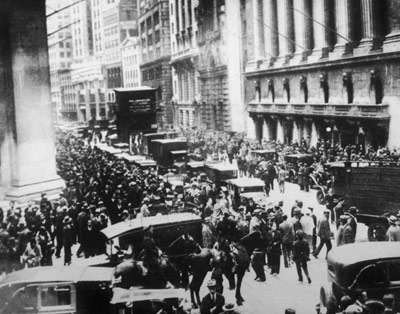
We’ve heard about tech bubbles and tulips and the collapse of the housing market. We know that people, corporations, and nations will go into debt because they expect a pay-off that they will only get because someone else will go into even deeper debt for an even higher expected pay-off. But we don’t always hear that in 1345 two medieval supercompanies, headed by the Bardi family and the Peruzzi family, went down at least in part because they loaned King Edward III money that he would pay off when he won a war against France — which he lost, and in losing started the Hundred Years’ War.
German states and private mints in the 1600s got into the booming business of small-denomination coins, and then slightly debased small-denomination coins, and then went out of business and ruined their own countries because everyone knew they made worthless coins. French ministers in the 1700s called the busts after economic booms “bloodlettings,” both because they were painful readjustments to the economy, and because holders of domestic debt tended to be executed so that no one had to pay them back. Korea went through its own “housing” boom via land prices in the 18th century. We know financial collapses because of speculation and the accumulation of debt happen regularly. But they have been happening regularly for a lot longer than we tend to think.
2) Rebellions
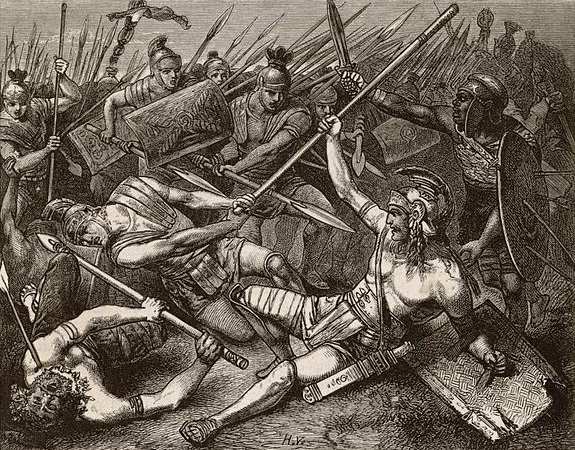
A few months ago I compiled a list of lessons we can learn about revolutions. A commenter came in with a great lesson that I missed: “Most revolutions fail.” Most people know about the 71 BC rebellion against the Romans, led by a certain Spartacus, even though it was crushed. Few know about the 51 BC rebellion against the Romans. Or the 132 BC slave rebellion against the Romans in Sicily. Or the two different rebellions against the Romans in the year 9 AD.
I could keep going. Every major power, whenever it stepped on people too hard, saw regular rebellions. Sometimes the rebellions were staged by classes of people, sometimes by people of certain race, sometimes people of a particular religion. There are a two contrasting lessons to be learned from this. The first, from the point of view of the people, is that most efforts to make a Brave New World end up with summary executions for those who stand up to the powers that be. On the other hand, most of the rebellions in history killed a few of the people in power before they were put down. There’s a lesson there for those in power. Treat people badly and they will randomly but regularly rise up and murder you.
1) Hippies
Free love, communal property, and the smugness that seems to come with both was not invented in the 1960s. It’s not even when it reached its highest social prominence. Ever heard a presidential candidate say they were for free love? People in the 1870s did. Victoria Woodhull, a woman of varied careers ranging from psychic-for-hire to brokerage firm owner, ran for president in 1872 with Frederick Douglas as her running mate as part of the Equal Rights Party. That was shocking enough, but Woodhull had made public statements saying, “Yes, I am a Free Lover.” And she was.
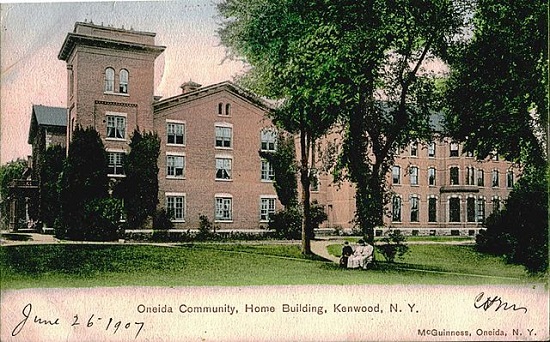
This wasn’t a new stance. In the 1820s and 1830s, Utopian communities dotted the American landscape. Some were austere places with an emphasis on celibacy. Others, like the one Louisa May Alcott’s father started, seriously considered free love before the women in the colony rejected it (the ratio of the sexes was skewed enough that the men severely outnumbered the women). Others, like the Oneida colony, were entirely into Free Love, and encouraged older members to guide younger members through their first sexual experience, and for members to form sexual attachments with outsiders as a way of recruiting more people. In the 1700s, Mary Wollstonecraft, early feminist and mother to Mary Shelley, believed in free love and shied away from marriage while embracing (at least at first) the triumph of the property-less class during the French Revolution.
Farther back into history we go. In the 14th century, the Brethren of the Free Spirit believed that all property should be held in common, there should be no official law, and people should have sex with whoever they pleased. In the 5th century adherents of the prophet Mazdak rejected private property and embraced free love. In the 2nd century, Adamites in North Africa believed they were sinless and could love whoever they chose. The order lasted, in one form or another, for three centuries. Basically, as long as sex and property existed, some group has been around deciding that it would be a good idea if everybody just shared both. It’s one of the most traditional lifestyles in the world.
